Between the years 2011 and 2019 I attended at least one performance of the Störtebeker Festspiele each year. In some years I visited the island of Rügen twice – once for the press performance and once on holiday – and saw three performances of the same play.
Of course, the Covid pandemic changed all of that, so what would have been my tenth year everything got cancelled. The set was built, tickets sold, no performances took place. The year after, 2021, the decision was taken early on to cancel the performances. In the end, the theatre was able to re-open in 2022 with precautions in place to isolate the actors from the audience and avoid possible infections.
Between 2020 and 2022, the actor playing Klaus Störtebeker – Alexander Koll – hat given up the role, resulting in new posters being produced and the role being re-cast to Moritz Stephan. 2022 also saw the interesting addition of a small canal to the stage, with part of the action taking place in Holland. But, after over two years of travel restrictions, we had set other priorities for the summer holidays and did not make in to Rügen.
So this year saw our Return to Rügen and to Ralswiek! Having spent the day in the village which included a walk to the stables, we attended the birds of prey show followed by the 2023 play “Gotland under fire” where – with permission – I was able to take some photos.
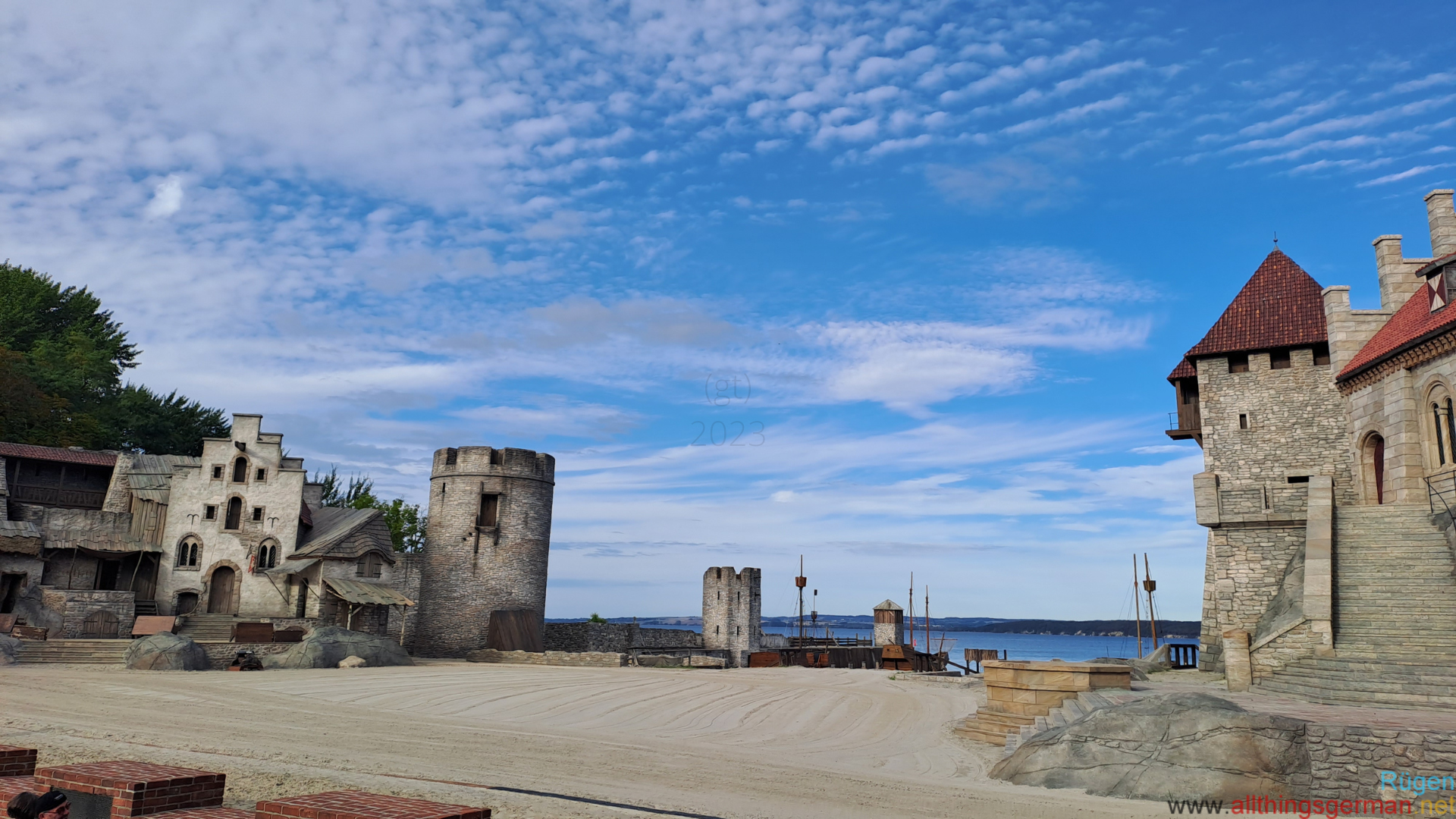
Unusually, both sides of the stage represent the same place: Visby, the largest settlement on Gotland and at one time a leading centre for the Hanseatic League. To the left, there is the settlement itself with its guest house. To the right is the home on the island of the Erich, Duke of Mecklenburg (Volker Wackermann), who at the beginning of the play has just defeated Queen Margarethe of Denmark to retake control of the island. The year is 1396 and when Erich is taken ill after failing to recapture Stockholm, control of the island falls to his widow, Duchess Sophie of Pomerania-Wolgast (Bianca Warnek), who rules with an iron fist to ensure Erichs family do not displace her, although this leads to hardship amongst the other residents.
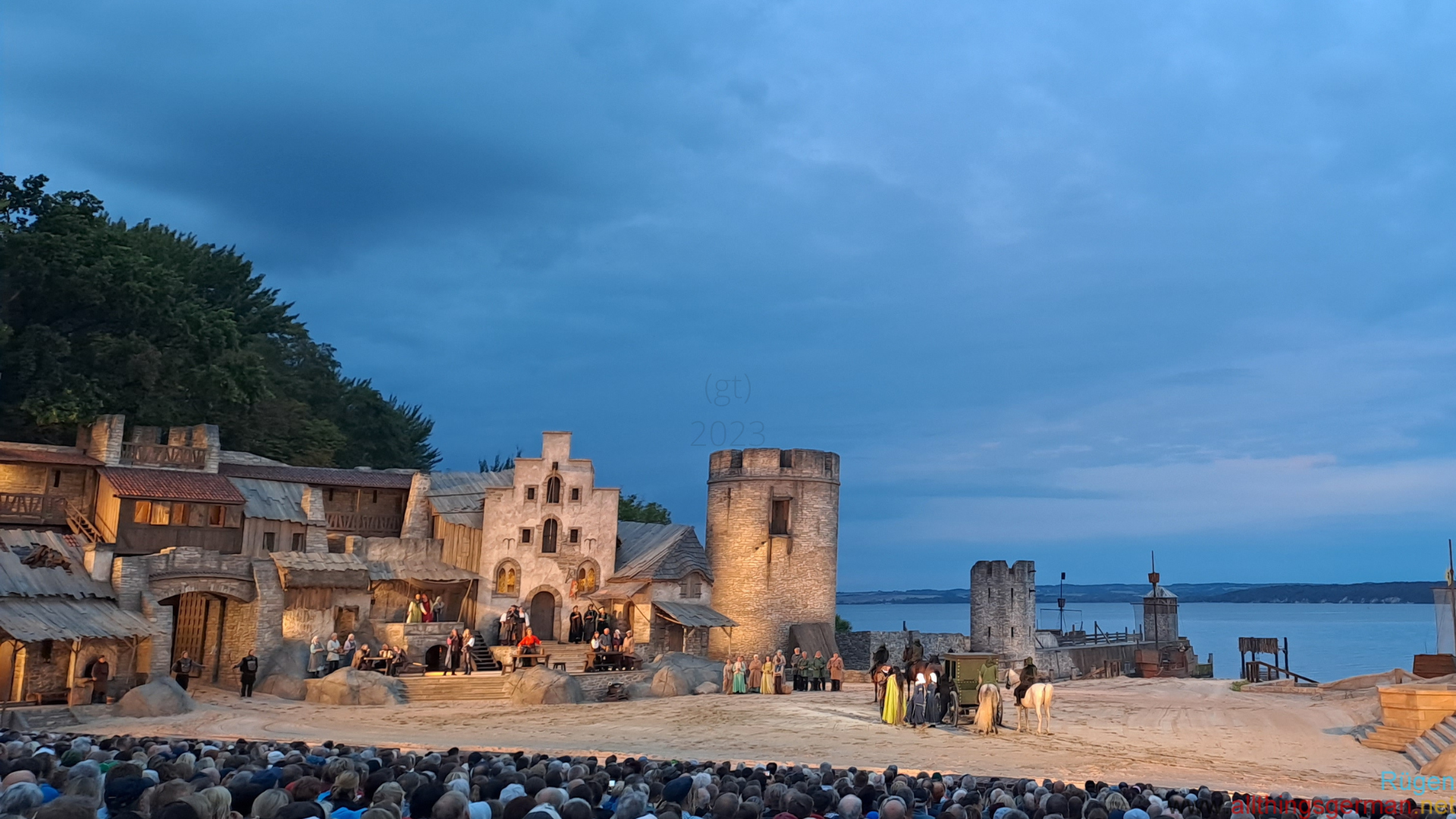
A mobile part of the stage is brought in a times to represent other locations.
Some changes are instantly recognisable: a new voice welcomes guests from the loud speakers, where Anna-Theresa Hick has taken over from her mother Ruth, both being members of the family that have run the theatre for the past 30 years. Resusable cups have been introduced for drinks, with these being promoted as collectors’ items.
And whilst some familiar faces remain such as Alexander Halfland as Goedeke Michels and both Mike Hermann Rader and Norbert Braun in supporting roles, Karin Hartmann, who for many years played the local innkeeper, has passed on her frying pan to Martina Guse, who incidentally was also in the first play that I saw back in 2011.
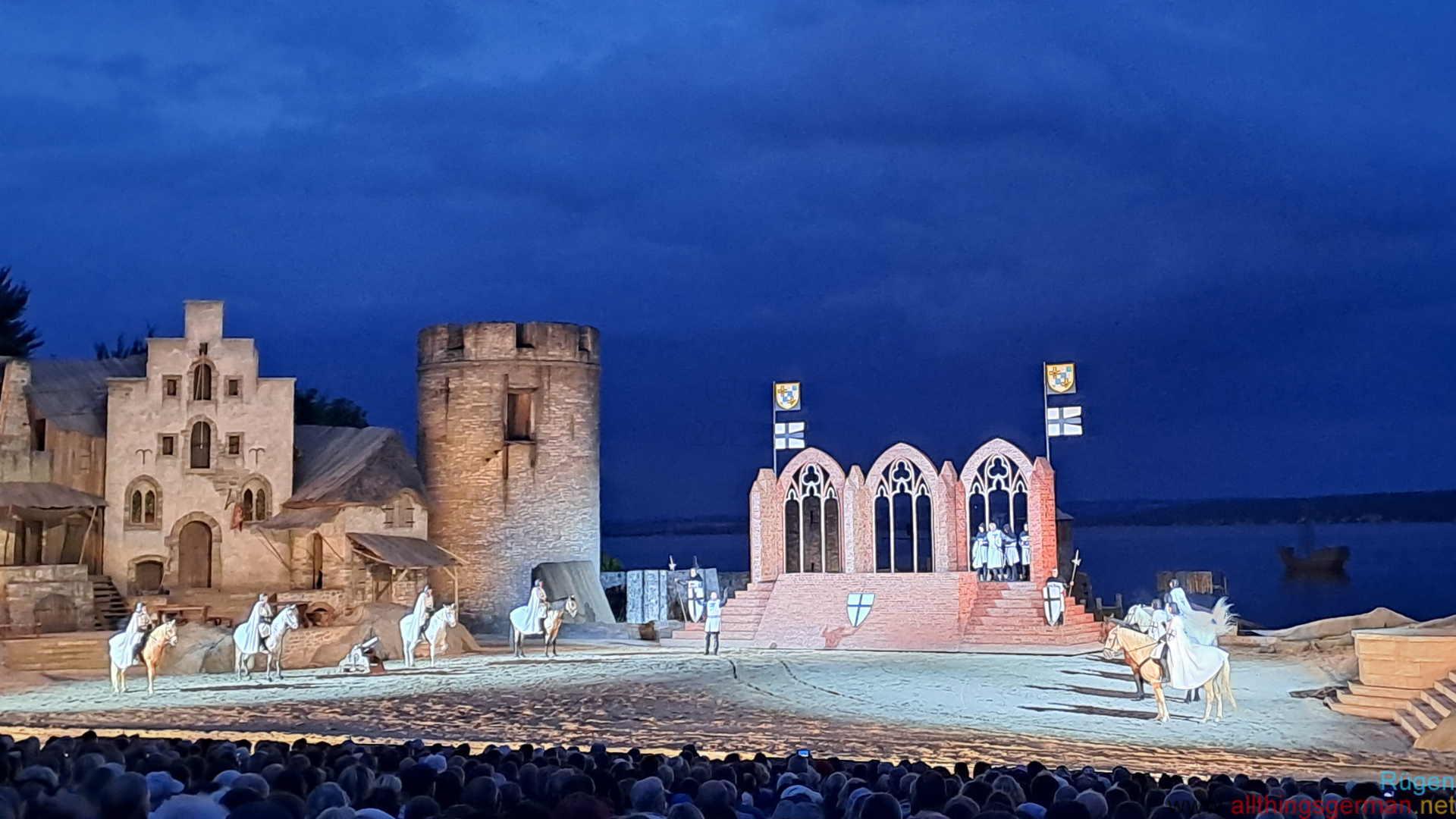
One person who is definitely still there and still singing is Wolfgang Lippert, whose songs in this year are more upbeat than they have been in the past. Whilst “Albatross”, originally from the East German band “Karat” makes its traditional appearance, the concept introduced in 2019 of adapting other songs from the GDR period has been retained, with “Am Fenster” and “Glastraum” from the band “City” and a further song “Lebenszeit” from the “Puhdys” being performed. As so often, at the curtain call it was Lippert who received one of the loudest cheers from the audience.
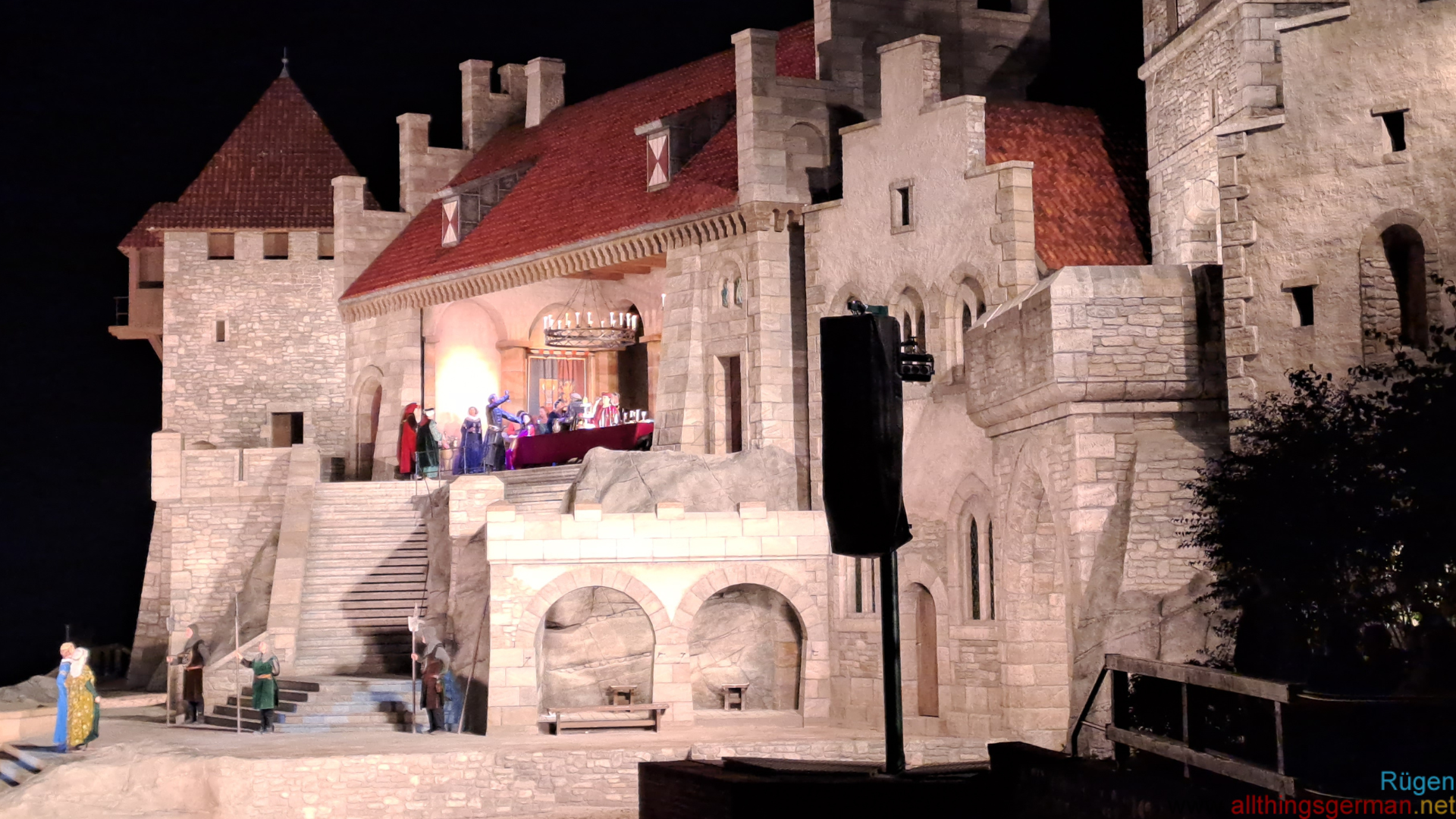
The play “Gotland under fire” takes place each evening from Monday to Saturday, but until until 9th September 2023. After that the stagewill be rebuilt to take us to Hamburg in the year 1401. Störtebeker fans should immediately recognise that year as the one in which – according to legend – the famous pirate lost his head, bringing an end to this cycle of plays. Tickets can already be reseved on www.stoertebeker.de.
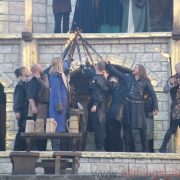
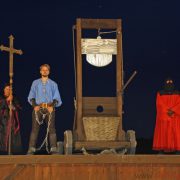
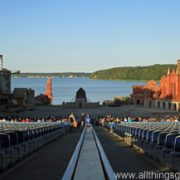
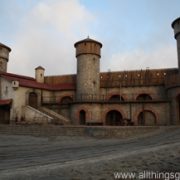

Speak Your Mind